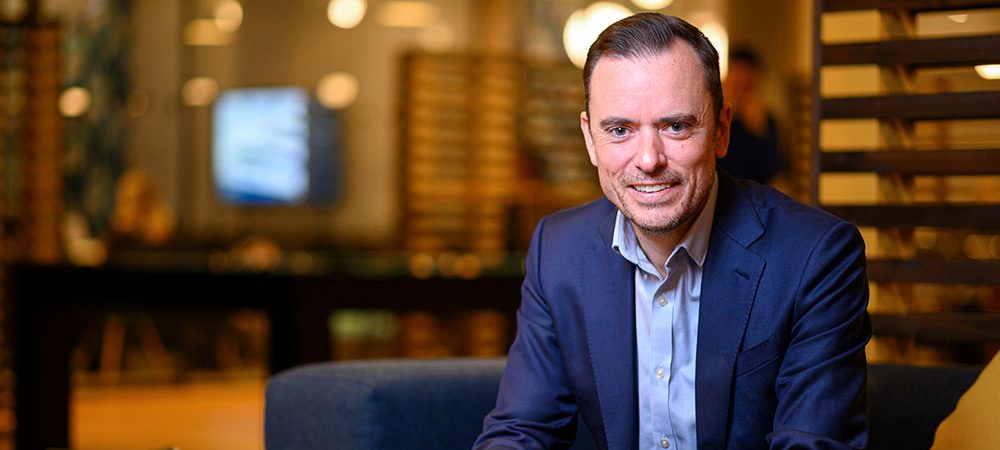We caught up with Forescout’s Regional Vice President, Chris Sherry, to find out what makes him tick…
What would you describe as your most memorable achievement?
I have worked in a variety of sales roles for the last 25 years, but my most memorable and proudest moment is my most recent. The growth and development I have seen over the last year by my team at Forescout – the contribution to the wider business, their drive and ambition – are moments of great pride for them and for me. Seeing the team recognised for their achievements and knowing what it means both personally and professionally to them is why I love sales leadership so much.
I experience a similar sense of achievement – for very different reasons – personally when I coach my son’s football team. Over the last eight years, the team has won various cups against all the odds and while they are considerably younger than my sales team, that sense of pride and achievement is the same when you give it your all no matter what.
What first made you think of a career in technology?
It was more by accident than design. I studied mechanical engineering at the University of Nottingham and later took a role with a software firm doing tech support. It was a stopgap straight from university while I worked out a long-term plan. After a while, a role came up in sales – I absolutely loved it and haven’t looked back since.
What style of management philosophy do you employ with your current position?
I am very open and like to set a clear vision for the team and align everyone behind it. A large element of my day-to-day management is focused on mentorship and coaching of the team. It is important to get to know what makes an individual tick, it is never the same thing for each person and they will all require something different from me to succeed. Top performers don’t need the same level of support as young guns starting out but they still need time and focus to get the best results. I take real pleasure in seeing all my team achieve their best potential.
What do you think will emerge as the technology trend of 2020 and why?
The rise in the number of applications and endpoints in all organisations renders the traditional thought of putting a secure ring around everything redundant. Instead, we need to consider how we understand all the different endpoints, applications, users and ways to access information and be more dynamic in the way we think about network segmentation and the concept of trust.
What do you currently identify as the major areas of investment in your industry?
Cyber continues to be a hot area for investment with many new technologies coming to market. While adversaries continue to evolve, there is still a shortage of skills across the cybersecurity industry. I am seeing significant development and investment from higher education establishments to attract young talent from enterprises investing in their staff and from vendors as we strive to enable knowledge transfer into our customers. This must continue to be a significant area of investment for us all.
How do you deal with stress and unwind outside of the office?
Physical pursuits like running and mountain biking help me unwind as well as coaching my son’s football team. I also just completed an ascent of Snowden for charity. It was many miles on a bike and a kayak across a lake, all in the wild Welsh weather but it was brilliant and a great personal achievement for a good cause.
If you could go back and change one career decision, what would it be?
I wouldn’t change anything. Although my career path started by chance, I would not change a thing about it and I feel extremely fortunate to have landed in, what I consider, to be one of the most exciting areas of the IT industry – cybersecurity.
What are the region-specific challenges when implementing new technologies in Europe?
The big challenge across EMEA is the variation across countries in awareness and approach to solving cyber-challenges. In some countries, we see strong leadership – governments driving forward regulation to secure customer data, but in others we see reluctance from enterprises to be early adopters – preferring to let others blaze the trail. It is the multicultural aspect of working across Europe that I really enjoy about my role.
What changes to your job role have you seen in the last year and how do you see these developing in the next 12 months?
At Forescout, we are in a rapid growth mode. Over the last year there has been rapid expansion in my team, not just sales roles but broader operations, professional services, marketing and so on as we build out our business. I expect this to continue into 2020 as we continue to grow and expand into more countries across EMEA. Exciting times ahead!
What advice would you offer somebody aspiring to obtain C-level position in your industry?
The cybersecurity industry is founded on trust. You have to trust the people, processes and technology around you to secure your enterprise, customer data, IP etc. In order to progress, real world experience is vital of course, but more than that, it is necessary to be well-informed, credible, to trust and be trusted among your peer network. Then to take this foundation and be confident to develop a clear direction, a vision for your business that will ensure you stay ahead of the threats.


